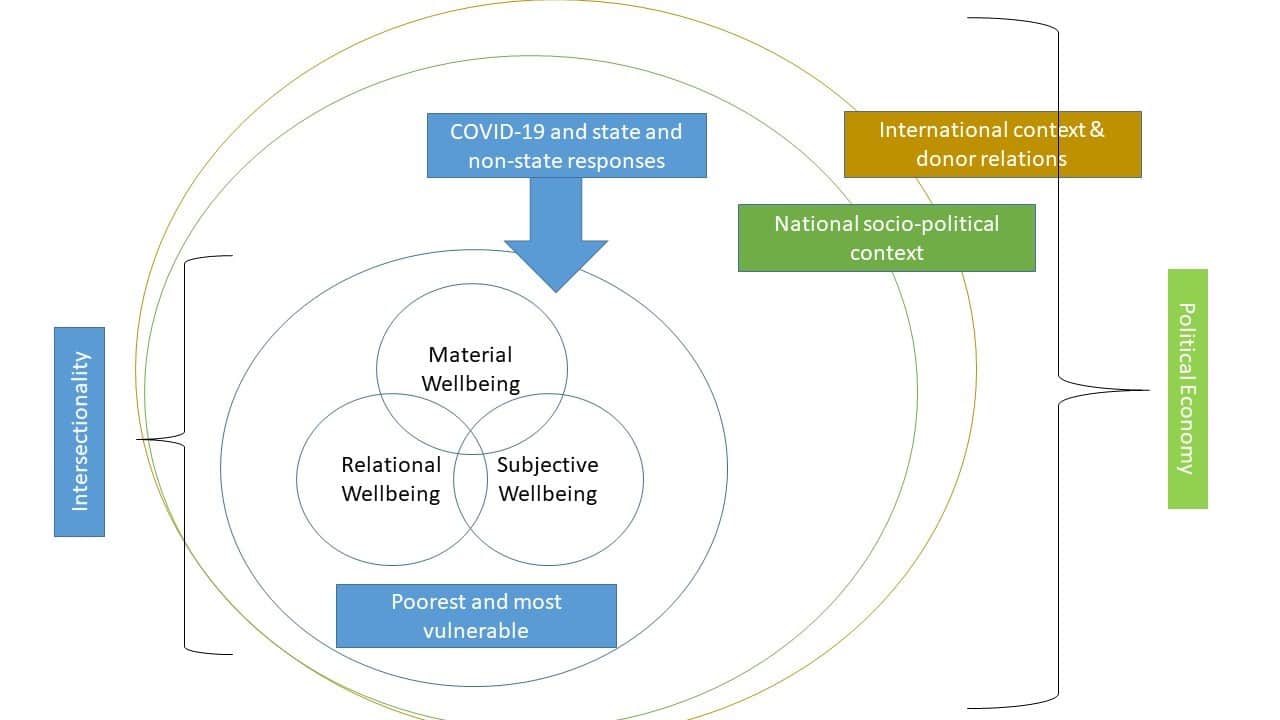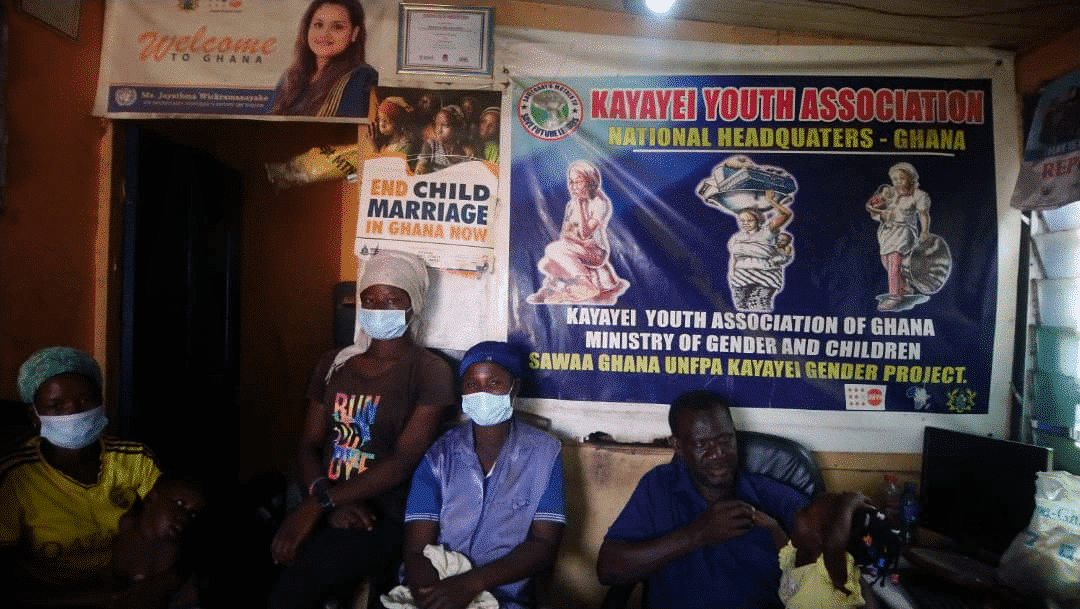About the research
COVID-19 hit Ghana in a context of heightened political polarization (due to the upcoming December elections) and has exposed the country’s structural inequalities in terms of access to basic services (e.g. water and education) and political representation. The politicking by political parties has furthermore exacerbated the mistrust of citizens in political institutions. Within this context specifc groups of people have shown to be particularly vulnerable due to the intersectionality of inequalities. By adopting a multidimensional wellbeing approach we will shed light on how Ghana’s most vulnerable have been affected.
Planned activities
The research will adopt the following analytical framework:

We have translated this analytical framework into the following research phases:
- Socio-economic and political context analysis (focusing on the state of the economy, inequality and legitimacy of political institutions in Ghana).
- Mapping of Covid-19 mitigation responses (by (national, regional, local) state and nonstate actors) paying specifc attention to the North-South divide.
- Identifcation of specifcally vulnerable groups for in-depth case-studies of social and spacial equity issues in times of COVID-19 leading to the selection of head-porters (Kayaye), residents of Chokor and market women in Bolgatanga.
- Equity Assessment (in formulation and implementation) of identifed policies/programmes: how have they affected the material, relational, subjective and collective wellbeing of the specifc groups mentioned in phase 3 (in the short and long term)?
Data Collection Methods: we will employ document analysis and key informant interviews to gather relevant information.
